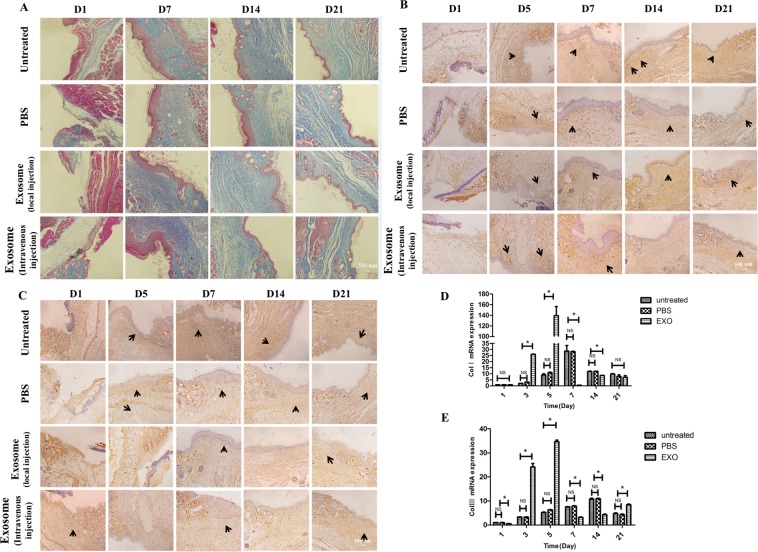Correction to: Scientific Reports 10.1038/srep32993, published online 12 September 2016
This Article contains errors in Figure 4D and Figure 7.
In Figure 4D, the image for 25 µg/ml exosomes panel is incorrect.
In Figure 7, the images for untreated D14, local injection D7, 14, 21, and intravenous injection D14, D21 of Figure 7B are incorrect; The images for untreated D5 and intravenous injection D1 of Figure 7C are incorrect.
The corrected Figures 4D and 7 appear below as Figures 1 and 2.
Figure 1.
Transwell test of fibroblasts with stimulation of different concentration of exosomes for 24 hours.
Figure 2.
ASCs-Exos promoted collagen expression and secretion during wound healing in vivo. Evaluation of collagen synthesis secretion of wounds following treatment with PBS, injected locally or intravenously with exosomes at Day 1, 7, 14, 21 post-wounding, untreated animals served as control (A). Immunohistochemical and RT-PCR analysis of collagen synthesis of fibroblasts. The results of immunohistochemical analysis of collagen I (B) and collagen III (C) were same as above (arrows indicate Col I or Col III positive), with collagen I (D) and collagen III (E) were obviously upregulated in the early stage. *P ≤ 0.05; NS: no significant difference.
These mistakes do not affect the results of this study. The authors apologize for these errors.




